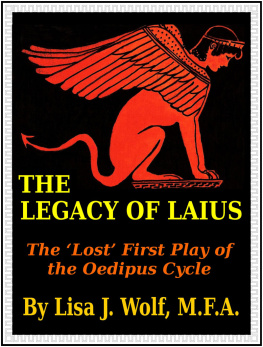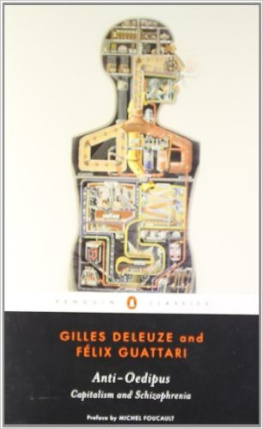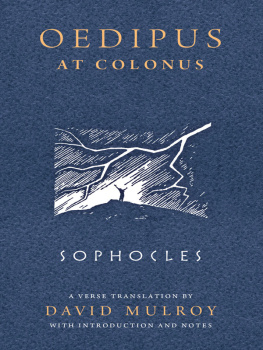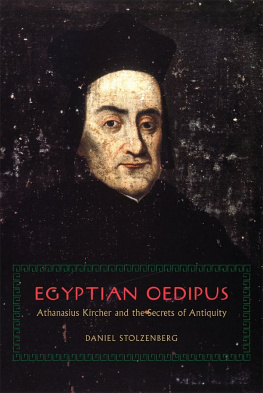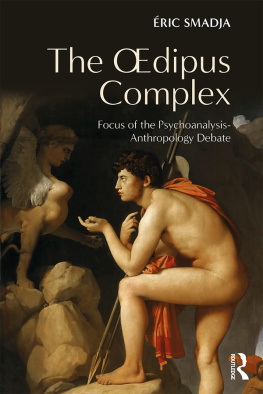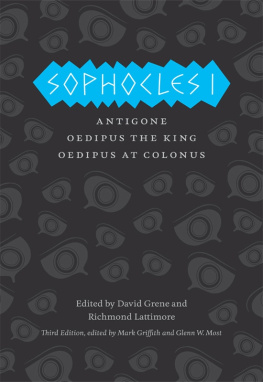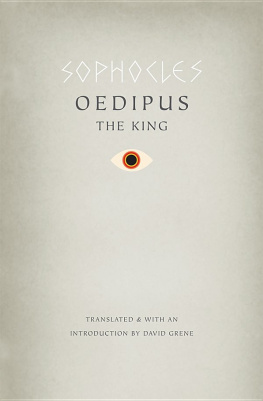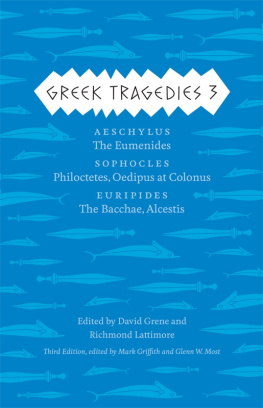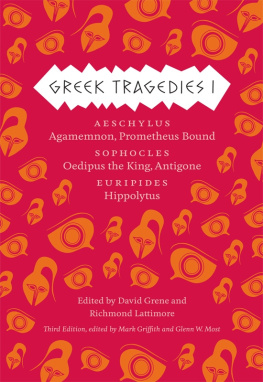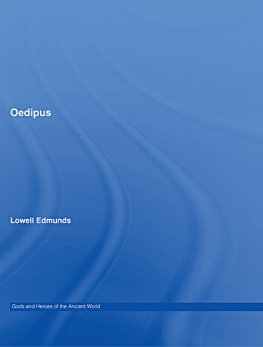THE LEGACY OF LAIUSBy Lisa J. Wolf, M.F.A.Copyright 2013 Lisa J. WolfCover art & design by J.D. Vagarasoto IIDedicated to:Plato; Sophocles; and Diotima of Mantinea,seer, priestess, philosopher,and teacher of Socrates;and to Judith Malina and Julian Beck of the Living Theater,whose pure dramatic integrity and passion embody the sacred essenceand purpose of Greek theater;And to Professor Dr. James D. Vagarasoto IIwho encouraged the publication of this play and inspires.PREFACE Laius, the king of Thebes was said by many to have been the first mortal to bring the practice of love of boys to the Greeks.
When Laius was too young to rule, his cousins, Amphion and Zethus, seized power; and Laius fled Thebes to save his life, taking refuge in neighboring Pisa where King Pelops took him in. When Laius grew to manhood, Pelops entrusted his son, Chrysippus, Golden Horse, to Laius to be taught the art of charioteering. Laius fell in love with Chrysippus and during the Nemean games kidnapped the boy and took him back to Thebes, since Amphion and Zethus were dead. Chrysippus either died by his own hand or at the hand of Pelops wife, Hippodameia, who wanted her own children, Atreus and Thyestes to succeed Pelops. It is said she burst into Laius bedchamber in the middle of the night while Laius and Chrysippus slept and stabbed Chrysippus through the belly. Laius married Jocasta who was to bear his child and because Laius would not make amends to Hera, the Theban regent was told the child would murder his father, Laius, and marry his mother, Jocasta, and Hera sent the Sphinx to punish Laius and Thebes, and so truly begins the Oedipus Cycle.
The Legacy of Laius happens on the day of the birth of Oedipus. The story of Laius as a Sophoclean play was lost in antiquity, but here it is written anew. DRAMATIS PERSONAE: Laius, King of Thebes Jocasta, Queen of Thebes Hera, Goddess, Queen of Heaven, wife of Zeus Zeus: God, King of Heaven, husband of Hera Nurse to Jocasta Apollo, God of the Sun Tiresias, seer of Thebes. Tiresias saw a goddess naked and in punishment was turned half-man, half-woman. Shepherd, servant to Laius Sphinx: A creature half woman, half lion, sent to Thebes to test and punish Laius by the goddess Hera. Chorus Scene 1: (Jocasta, Queen of Thebes, sits at her loom weaving a tapestry showing two roses climbing two pillars arching together to produce a third rose atop which sits a child holding a scepter and a wine cup.
Above and behind the Queen and tapestry are the Gods of Mt. Olympus with Hera and Zeus in reign amidst a firmament of stars on which gods and goddesses rest.) JOCASTA: Husband dear, Our future dwells within my womb To come and brighten Thebes kings room, A child soon born shall raise your scepter high And carry on when we shall die. Zeus, and Hera, parents to us all, Hear Jocastas humble call To bless this fruit of man and wife With wisdom, peace and longest life. Laius, see my womb does move; The child prepares to join us soon. Our love shall bear this fragrant bloom Dispelling Thebes barren somber gloom. LAIUS (Stands downstage at window.
Sound of troops marching below.): Woman, do not bore me with your drivel: Manliness at softness shrivels. Affairs of state consume my mind And plans of war I must unwind; Beneath my children march in pride To serve the fatherland, they travel wide. Their youthful beauty alone can capture me As each embodies masculinity. No use for womens foolish words, The breeding vessel should not be heard But serve her purpose and then be gone So mens work can best go on. JOCASTA: Ah, Goddess, I feel the child coming In the midst of war and drumming. Laius, hold me to your breast; This labor shall put me to the test.
LAIUS: Away, Madam, and give me peace, My soldiers virtues beckon me: Strong and handsome, brave and true, No simpering fools, The Gods pure tools. Call your nurse, my dullard wife, And give peace to my imperial life. My duty to you has been well done; The offspring emerge before the sun. Nurse, come! (Enter Nurse.) LAIUS: Take this laboring woman hence So I can contemplate the sense Of Thebes affairs of state That can no longer wait. JOCASTA: Come to me soon my darling, Lord, Whose presence I do adore. (Exit Jocasta with Nurse.) LAIUS (Kneels and lights a candle and incense.): In the light of somber day For my passion must I pay? Shall the goddess hag take her toll For to her teat I did not hold? And Chrysippus dead spirit scolds That my force of love was overbold. (Exit Jocasta with Nurse.) LAIUS (Kneels and lights a candle and incense.): In the light of somber day For my passion must I pay? Shall the goddess hag take her toll For to her teat I did not hold? And Chrysippus dead spirit scolds That my force of love was overbold.
I see the knife in his belly sink And the love we shared cast over the brink. The reins of power in my hands Give me authority like god to man; Like Phoebus Apollo I do steer This nation Thebes through stormy seas. Ah Zeus, love for handsome Ganymede made you bold, As Chrysippus my heart did hold. My prince, my golden horse, to bliss carried me So why should I bow to Goddess decree When man alone entrances me? When men unite, true love ensues And in my heart I cannot choose Jocasta, Heras maid, over Zeus model form. For in Chrysippus I knew gods pure charm. Zeus, I trust you to avert the goddess jealous harm And keep Chrysippus memory sweet and warm.
Though fruitless seed I spent with him, The love we shared no frivolous whim; My golden horse I rode full well To heaven until cast down by female hell. Zeus, you threw Hera to the ground When she your other lovers found And showed her man is form supreme And womans will a shrill bad dream; So wipe away the goddess curse And give to women Hades hearse And let the love of men hold sway. Upon my golden horse Id play In pleasure-filled Elysian fields Taking what my stalliond yield. Why should I apologize For following a lovers eyes? I am a king, free of plebian rule Not a common female mule. Ah, Zeus, to you I raise this plea To set my love for man-child free. Tether your ungracious wife And bless this highest form of life When god to god finds love, not strife, Rewrite the terms for mortal rules And let us be as you to choose The perfect object as our muse; A higher loves true form complete And show the shrewish spirit her due defeat.
Children born of man with man Would break cruel Heras usurper plan And against you, Zeus, no woman stand. Chrysippus and I the beauteous norm would set earth free to perfect form. Extol your strength and manly pride By blessing love too great to hide, And plant a race of super men, My sovereign, Zeus, I know you can Eradicate the subtle rule of women And earth reveal a purer heaven. (Lights fade on Laius, prostrate.) Scene 2 (Hera with Zeus; Apollo, god of the Oracle at Delphi, son of Zeus and Leto; and the Sphinx, spot-lighted above 'in the clouds on Mt. Olympus'.) HERA: Zeus, you dally with maidens at your will While I sit neglected on this hill; And on earth the sounds of hell As humans dishonor the wedding bell And plant weeds upon my marriage bed And vestal vows become as dead. Laius visited his neighbors land And laid young Chrysippus upon the strand And man to man unleashed his seed.
Laius revels in foul deeds And is unfit to sit as Thebes high king Having spoiled his wedding ring. This travesty by me shall meet With censure swift and oh, so sweet To make example to mortals all Before they likewise break my law and fall. Man and woman alone shall mate So Laius now must meet his fate, And horrify all who try To change the way humans multiply. From Mt. Olympus, Phoebus seat, Tiresias, the seer of Thebes, Servant to Delphi Shall carry to Laius this song of fear. And should he not recant his travesty, The Sphinx shall teach the king He is but a wandering shade, an evil memory To frighten all who insult me, Keeper of the marriage bed.
Next page
